Climate change
1912:
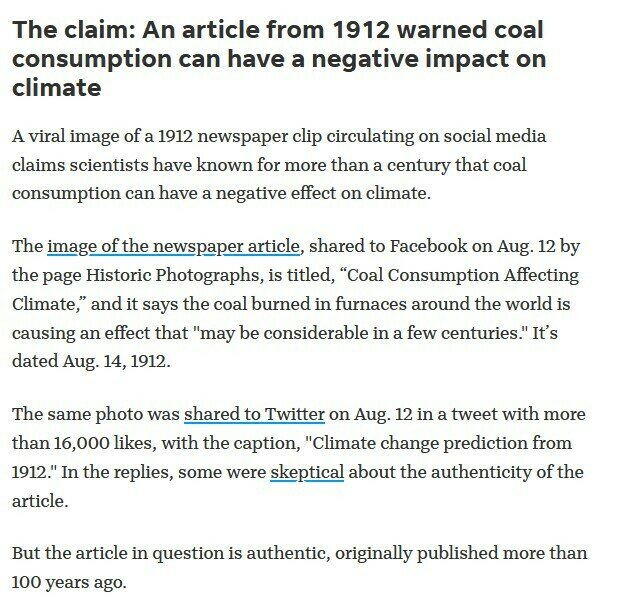
1985: Carl Sagan
1999: Mann's hockey stick
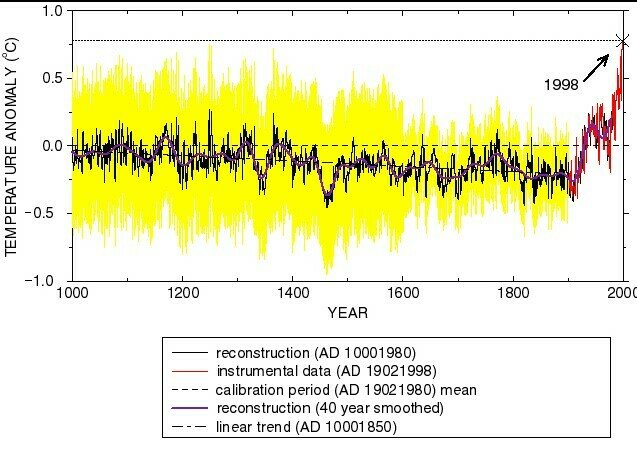
Mann, Bradley & Hughes 1999
Late 1990s a number of competing teams of climatologists found indications that recent warming was exceptional
1999: Mann's hockey stick

2010: Mann's hockey stick cleared
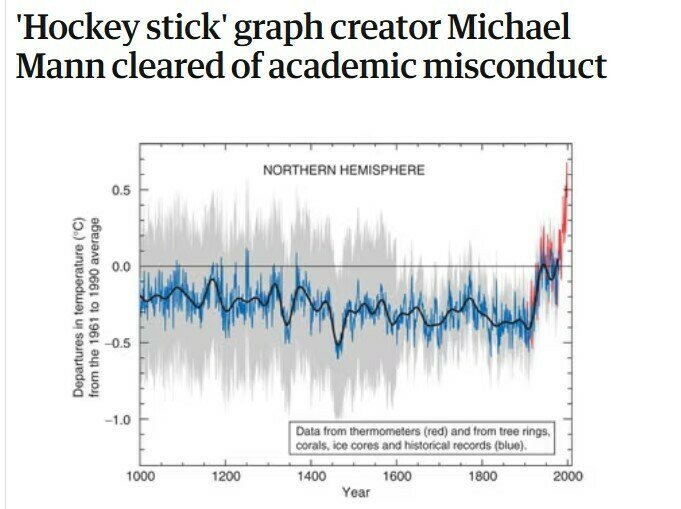
IPCC reports
- Established in 1988: United Nations Environment Programme (UNEP) and the World Meteorological Organization (WMO) in 1988
- First report in 1990: First IPCC Assessment Report (FAR) underlined the importance of climate change as a challenge with global consequences and requiring international cooperation
- The Sixth Assessment Report (AR6) was finalized in March 2023
2006: An inconvenient truth
2006: An Inconvenient Truth is a 2006 American documentary film directed by Davis Guggenheim about former United States Vice President Al Gore's campaign to educate people about global warming.
2015: The paris agreement
2015: The Paris Agreement is a legally binding international treaty on climate change. It was adopted by 196 Parties at the UN Climate Change Conference (COP21) in Paris, France, on 12 December 2015. It entered into force on 4 November 2016.
Its overarching goal is to hold “the increase in the global average temperature to well below 2°C above pre-industrial levels” and pursue efforts “to limit the temperature increase to 1.5°C above pre-industrial levels.”
Summer 2008: Greta Thunberg climate strike
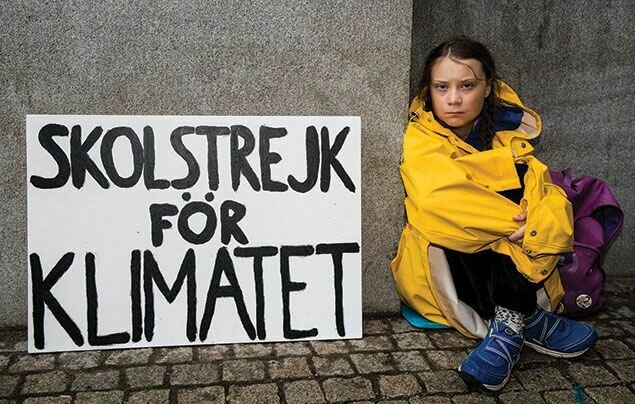
Summer 2018: strike Greta Thunberg resulted in Fridays for future...
December 2018: protest in Brussel
2 december 2018: protest in Brussels (70.000 people)
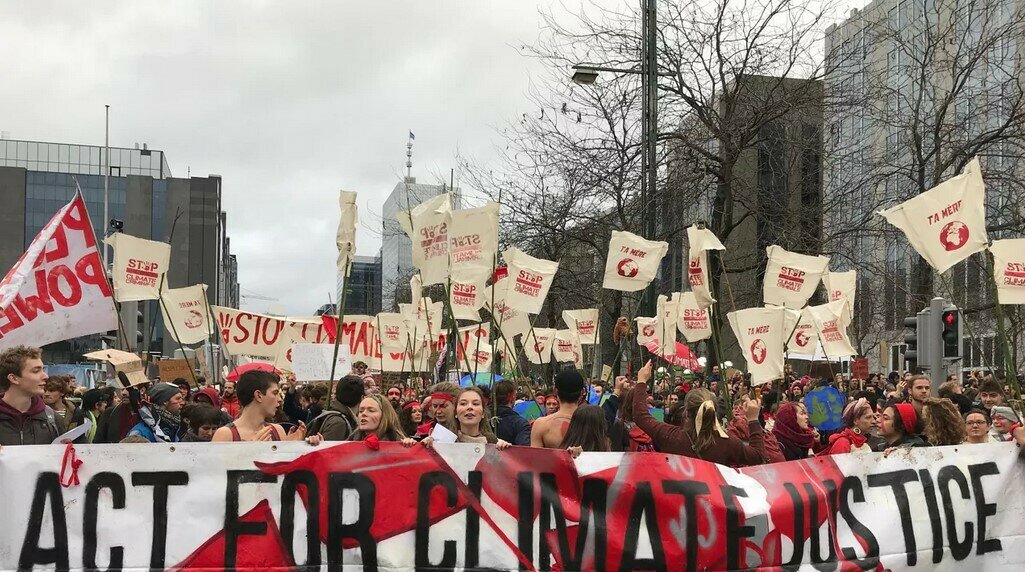
2023: UN Secretary
2023: Our world needs climate action on all fronts -- everything, everywhere, all at once.
2023: IPCC report
Human activities, principally through emissions of greenhouse gases, have unequivocally caused global warming, with global surface temperature reaching 1.1°C above 1850–1900 in 2011–2020. Global greenhouse gas emissions have continued to increase over 2010–2019, with unequal historical and ongoing contributions arising from unsustainable energy use, land use and land-use change, lifestyles and patterns of consumption and production across regions, between and within countries, and between individuals (high confidence). Human-caused climate change is already affecting many weather and climate extremes in every region across the globe. This has led to widespread adverse impacts on food and water security, human health and on economies and society and related
losses and damages63 to nature and people (high confidence). Vulnerable communities who have historically contributed the least to current climate change are disproportionately affected (high confidence)
https://www.ipcc.ch/report/sixth-assessment-report-cycle/
Summer 2023
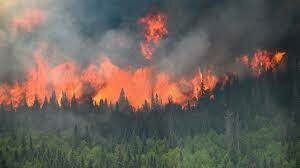
Forrest fires (Canada)
Summer 2023
This year’s fire season, which sparked the largest wildfire ever recorded in the EU, has been devastating for humans and the environment.
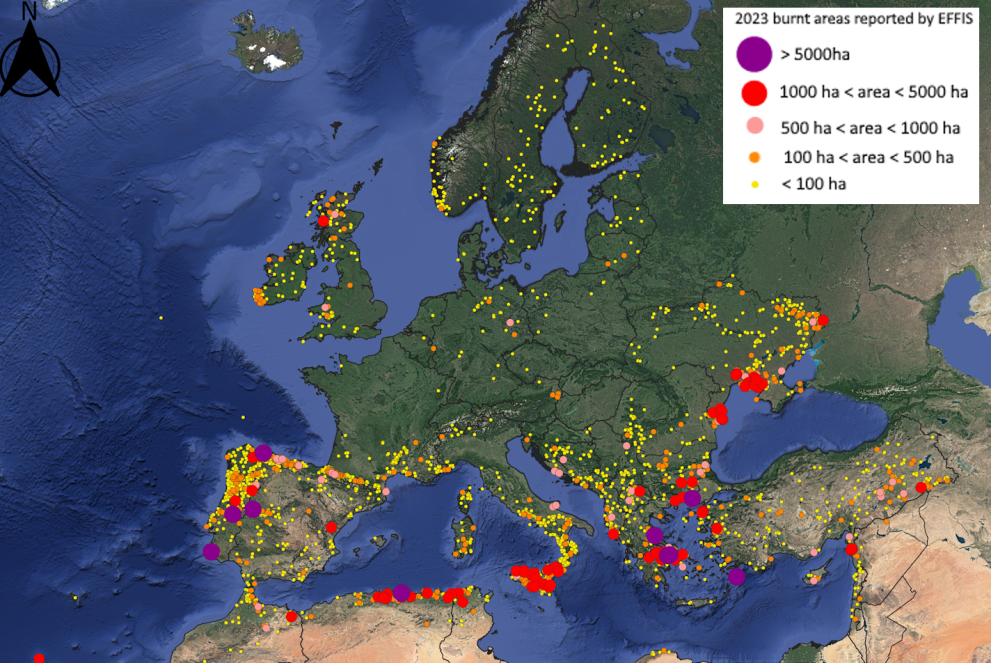
September 2023
Floods

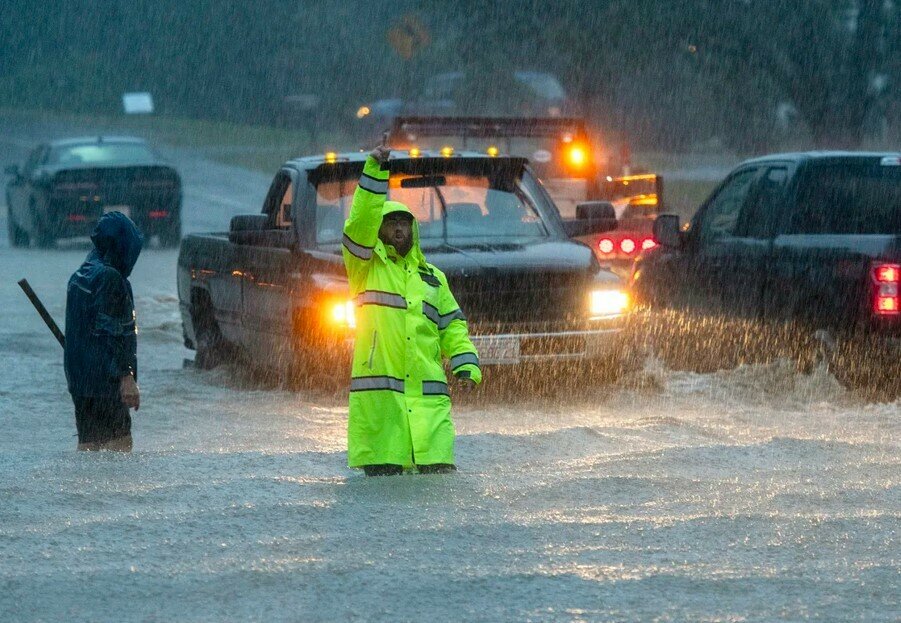
September 2023
https://news.un.org/en/story/2023/10/1141937

September 2023
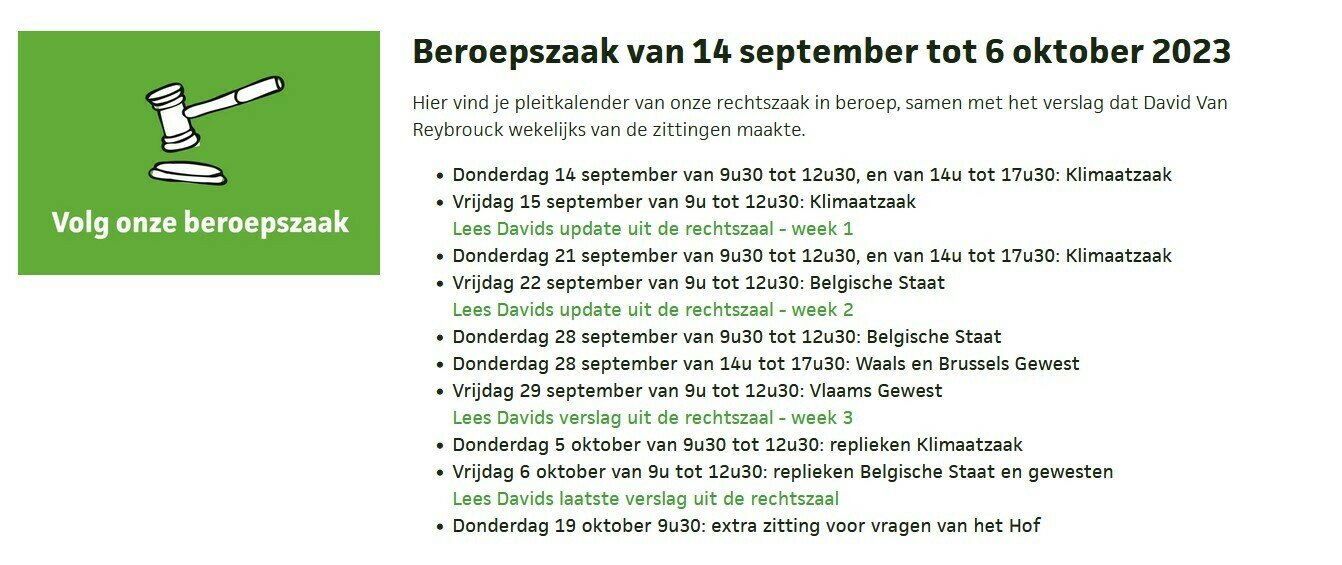
Klimaatzaak
Tipping points
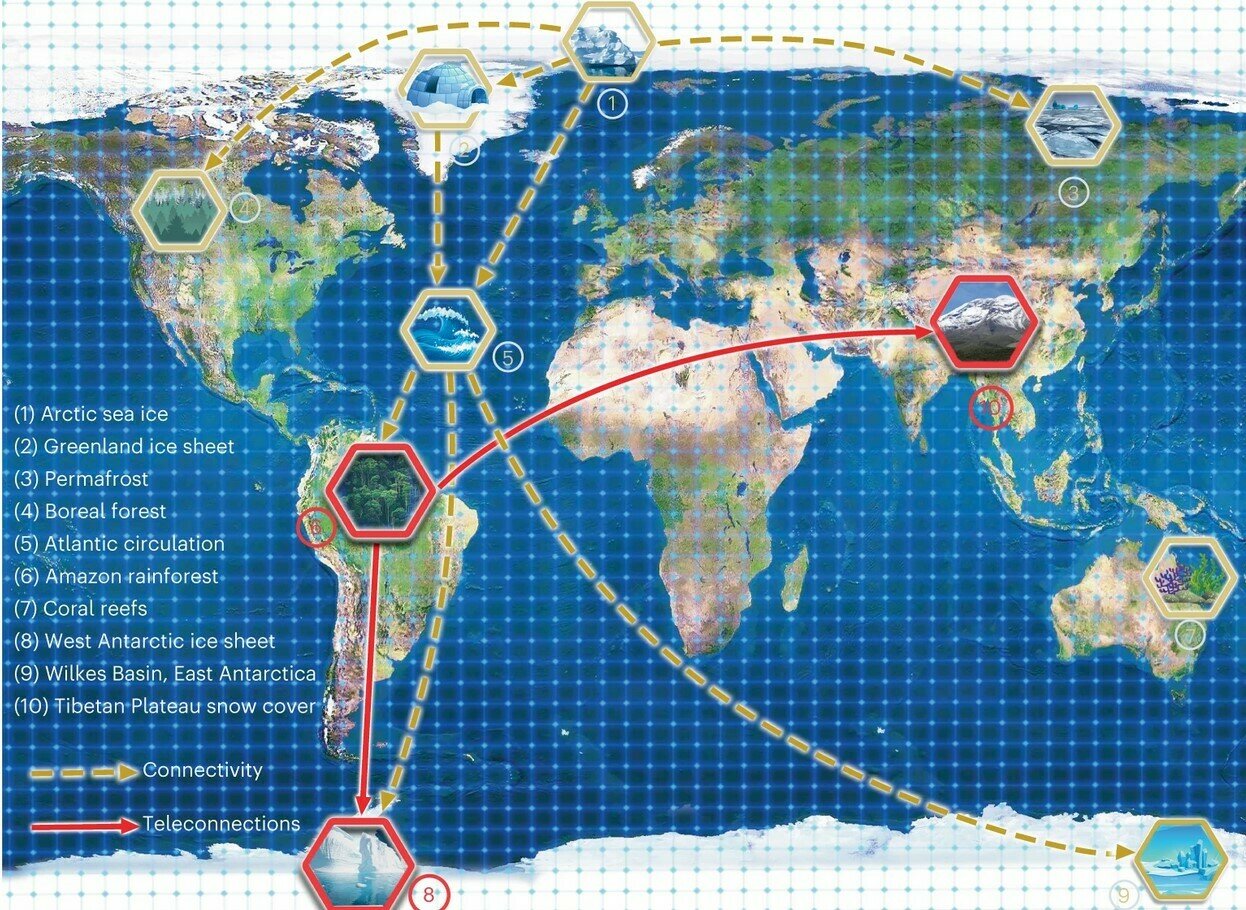
Teleconnections describe remote connections between components of the complex climate system and reflect the transportation of energy or materials on global scale
Tipping points: many uncertainties
Research on the possibility of future abrupt climate change has been popularized under the term ‘tipping points’ and has often been motivated by using simple, low-dimensional concepts. These include the iconic fold bifurcation
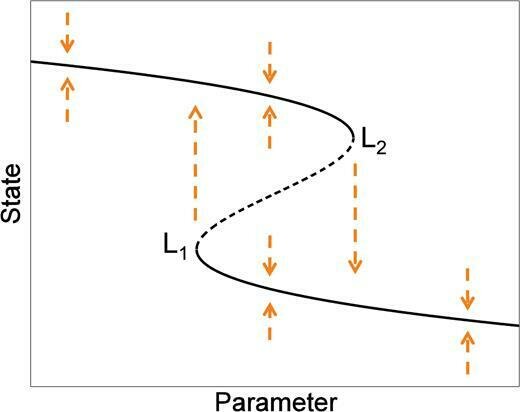
Tipping points: many uncertainties
- Linear approaches have been very successful in many fields of science.
- They often fail, however, to describe discontinuities, abrupt events and persistent catastrophic shifts
- Such phenomena occur only from time to time, yet they lurk in many complex systems like
- financial markets,
- the human brain,
- ecosystems
- the climate system
- Each tipping element is conjectured to undergo abrupt change when an external parameter reaches a certain critical level, the ‘tipping point’.
Tipping points: many uncertainties
- Despite this generic mathematical behaviour, it is obvious that reality is much more complicated, e.g. because of spatial heterogeneity and temporal variability

Tipping points: many uncertainties
We focus on several climate system components and ecosystems that have been proposed as candidates for tipping points,
- ice sheets,
- the Atlantic Ocean circulation,
- vegetation in North Africa and
- Arctic sea ice.
In most example cases, multiple equilibria found in simple models do not appear in complex models or become more difficult to find, while the potential for abrupt change still remains.
Tipping of the AMOC
The collapse of the AMOC is arguably the most popular candidate of a climate tipping point.
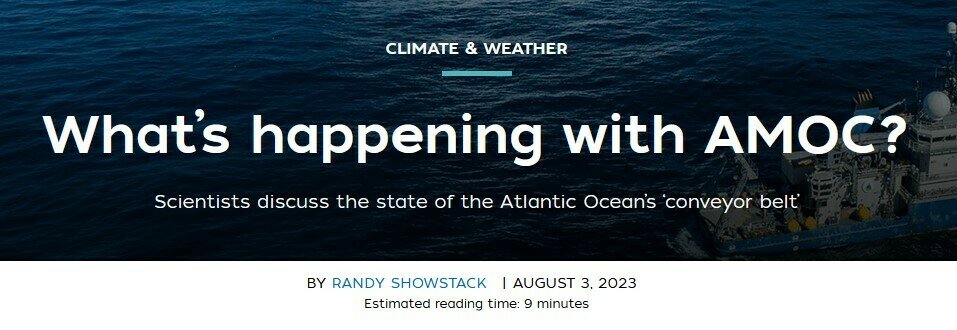
The Atlantic Meridional Overturning Circulation (AMOC) is a component of the larger Atlantic circulation system, but they are not the same thing.
Tipping of the AMOC

- In recent years weakening in circulation has been reported, but assessments by the IPCC, based on the Climate Model Intercomparison Project (CMIP) model simulations suggest that a full collapse is unlikely within the 21st century.
(strong consensus) - Here we provide statistical significance and data-driven estimators for the time of tipping. We estimate a collapse of the AMOC to occur around mid-century under the current scenario of future emissions.
(more speculative)
Tipping of the AMOC
Though both would be catastrophic
- A collapse would provide very little warning
- Likely lead to many consequences that we do not fully understand at this point.
We have a better idea of what a weakening would entail:
- Europe would cool,
- the North Atlantic storm track would strengthen – which affects the entire eastern seaboard of the U.S. as well as Europe – and
- precipitation patterns over equatorial regions would shift southward.
- These effects would directly impact agriculture, food prices, transportation, construction, disease, immigration, and political stability.
- One of the most scientifically robust results at this point is that the AMOC is strongly connected to precipitation (neerslagh) over the Sahel, a region that just experienced its seventh political coup in the past three years. I don’t think this is a coincidence—climate variability is directly linked to economic impacts and political stability.
Tipping of the AMOC

- In recent years weakening in circulation has been reported, but assessments by the IPCC, based on the Climate Model Intercomparison Project (CMIP) model simulations suggest that a full collapse is unlikely within the 21st century.
- Here we provide statistical significance and data-driven estimators for the time of tipping. We estimate a collapse of the AMOC to occur around mid-century under the current scenario of future emissions.
Tipping of the Ice sheets in antartica
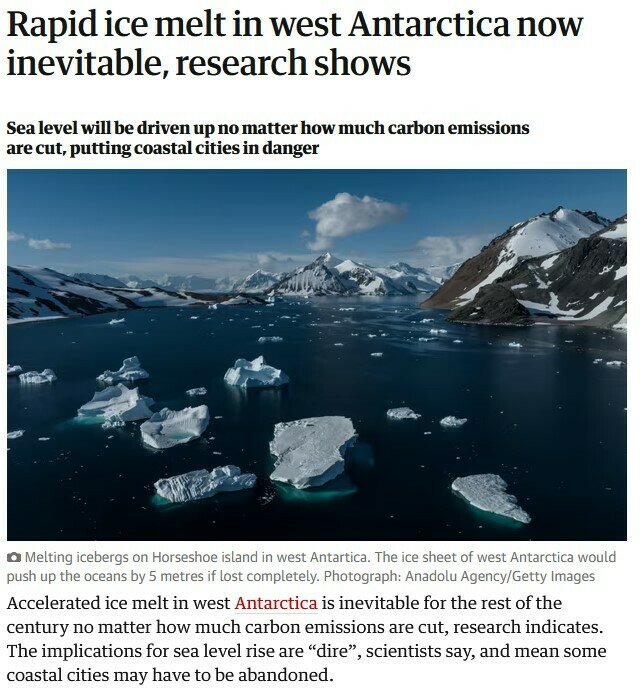
Tipping of the AMOC
Voorbeeld film day after tomorrow...
Science is not trusted...
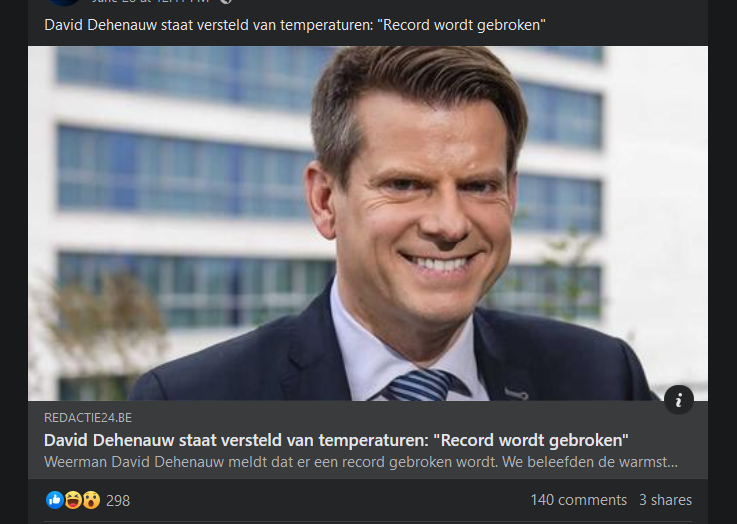

Climate hoax
Our responsibilities?
Our responsibilities?
- Individuel level
- Educate yourself!
- Teach to as many people as possible
- Join a group
- Find a job that makes our society more sustainable
- Important to learn communication skills and to make good figures, presentations. Try to look at other feelds, like marketing and use there technique to bring your message. (Veritasium!)
- Do something instead of nothing, start small, and learn step by step how to make positive change
- Any feeld, any job can use people who will make change
Our world needs climate action on all fronts -- everything, everywhere, all at once.
Our responsibilities?
climate change
By Nele Vandersickel
climate change
- 370



